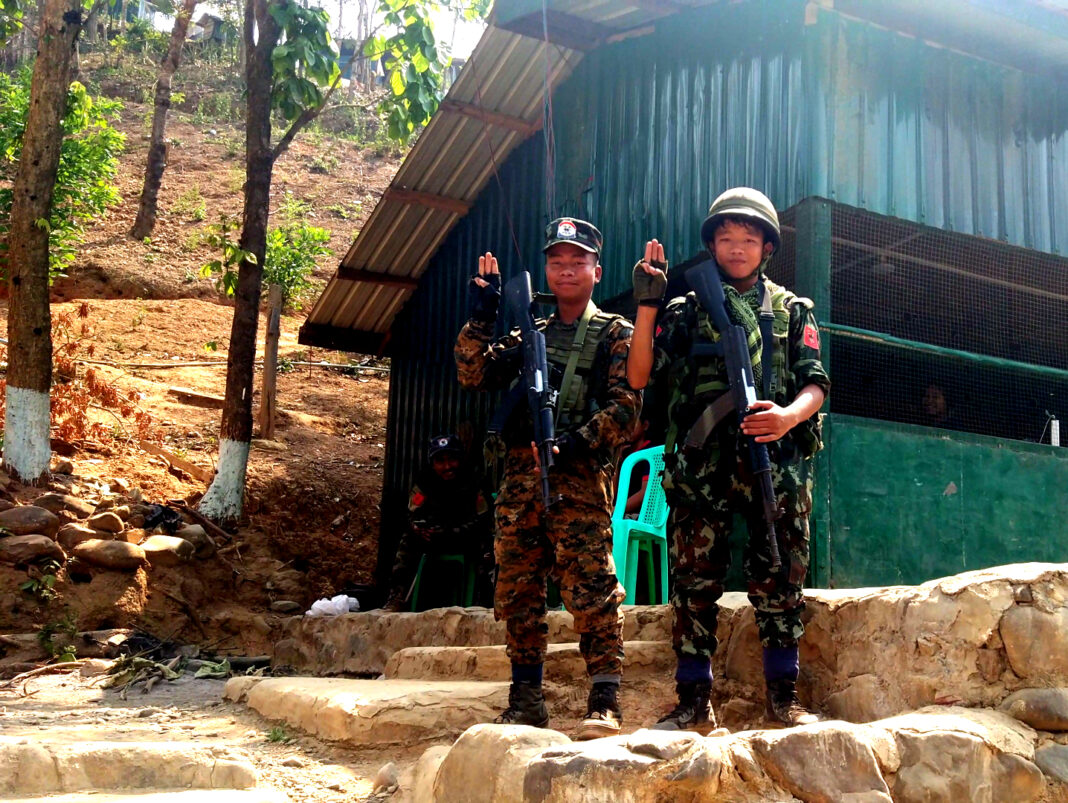by Theo Guzman
After months of military stalemate, more than 30,000 casualties, millions of displaced people, 36 months of emergency rule and massive arrests, the Burmese military junta is facing an unprecedented series of setbacks on the third anniversary of the coup. This is particularly noteworthy in light of the launch of Operation 1027 (O1027) by the Brotherhood Alliance last October. Comprising three revolutionary factions and backed by various forces, including the People’s Defence Forces of the secretive National Unity Government (NUG), this operation has played a pivotal role in recent developments on the ground.
The Brotherhood Alliance’s military efforts have caused significant casualties and led to large numbers of defections and desertions within the Tatmadaw (Burmese army). Notably, entire battalions have surrendered. The Brotherhood’s most remarkable achievements include the successful capture of Chinshwehaw, on the Chinese border, and the seizure of numerous large and small military outposts in Shan, also on the border, and in Arakan.
The capture of the towns of Laukkai (Kokang) and Paletwa (Chin) had the greatest psychological impact on Tatmadaw soldiers. It led to the sentencing of six generals to death or life imprisonment for surrendering, as well as public and official criticism of junta leader Min Aung Hlaing. In particular, the prominent ultra-nationalist monk Pauk Ko Taw cited him as an example of leniency and endorsed Soe Win, his deputy, as a potential replacement.
As a result, Min Aung Hlaing finds himself in an increasingly precarious position, with rumours circulating about his possible dismissal as military chief, which could see him move into a “civilian” prime ministerial role in a possible coalition government with pro-junta parties. However, many see this as a superficial change, with the hardliners likely to retain control, possibly with Soe Win taking the lead.
In a sign of significant developments, a senior civilian bureaucrat from the Ministry of Foreign Affairs attended the summit of the Association of Southeast Asian Nations (ASEAN) in Laos, the current chair of the organisation. This departure from the junta’s previous practice of sending only military representatives to international summits marks a shift. As for former prime minister and Nobel Peace Prize winner Aung San Suu Kyi, there has been no recognition of the detained and convicted leader, and the military has gone so far as to auction off her house.
To learn more, read our Myanmar conflict factsheet
On the cover photo, young fighters of the Chin National Army (CNA) © Alessandro De Pascale
























